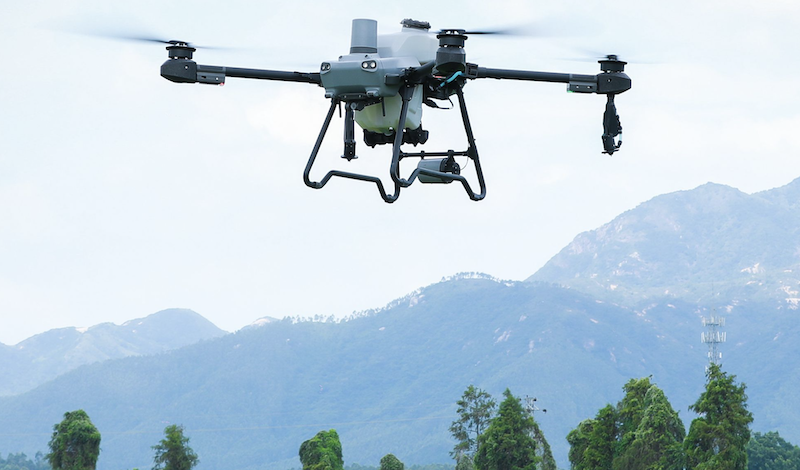Vietnam launches alliance to boost emerging low-altitude economy with drone focus
Vietnam has taken a bold step toward shaping its future in advanced technology with the launch of the Low Altitude Economy (LAE) Alliance, an initiative aimed at positioning the country as a global hub for drone innovation and operations.
A group of 10 enterprises in telecommunications, technology, finance and startups has teamed up to establish Vietnam’s Low Altitude Economy (LAE) Alliance, aiming to explore a potential sector valued at up to US$9 trillion globally.
The initiative envisions a new economic engine that could create one million high-quality jobs, generate tens of billions of US dollars and support thousands of related businesses within the next 10–15 years.
It lays the foundation and strategic direction for Vietnam’s emerging low-altitude economy, with the goal of making the country a global drone capital.

An agricultural UAV from AgriDrone Vietnam JSC. Photo courtesy of the company
The alliance was co-founded by Nguyen Van Khoa, CEO of tech giant FPT Corporation and Don Lam, CEO of equity firm VinaCapital. Khoa serves as chairman, while Lam and Tran Anh Tuan, CEO of the Vietnam UAV Network, are Vice chairmen.
According to Tuan of the Vietnam UAV Network, the global low-altitude aviation market may reach $700 billion by 2035. China leads with drone delivery services in Shenzhen, while Amazon in the US targets five billion drone deliveries by 2030.
Regulatory barriers remain the biggest challenge as strict UAV management rules still limit domestic R&D, testing and production, he said at the launch ceremony held this week during the first Vietnam Private Economy Landscape (ViPEL 2025) high-level session.
Tuan suggested that Ho Chi Minh City create a dedicated drone testing zone to accelerate industry growth.
Truong Gia Binh, Chairman of the Private Sector Development Research Board (Board IV) under the Government’s Advisory Council for Administrative Procedure Reforms, called this “a once-in-a-lifetime opportunity” for Vietnam to become a global hub for low-altitude technology.
He called on relevant sides to harness public–private partnerships to clear regulatory bottlenecks and allow the private sector to advance in this promising field.
Minister of Justice Nguyen Hai Ninh said that the private sector has shown strong interest in developing this model and can work closely with government agencies to test and shape a suitable legal framework.
At the same session, the LAE Alliance signed a strategic cooperation agreement with the Ho Chi Minh City People’s Committee to promote implementation.
The ViPEL is one of four initiatives assigned by the Prime Minister to Board IV under Resolution No. 68 on private sector development.
The low-altitude economy includes all economic activities conducted below 1,000 meters, using drone technology, artificial intelligence (AI), big data and the Internet of Things (IoT) for monitoring, operations and service delivery.
This sector could drive innovation in R&D, manufacturing, aircraft traffic management systems (UTM) and supporting infrastructure. According to Morgan Stanley, the global low-altitude economy market could reach $9 trillion by 2050.
Vietnam has already taken initial steps to mark its place on the world low altitude map. In August 2025, tech enterprise CT Group signed a contract to export 5,000 UAVs to South Korea.








